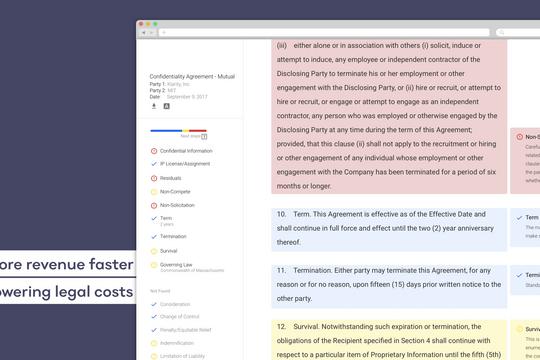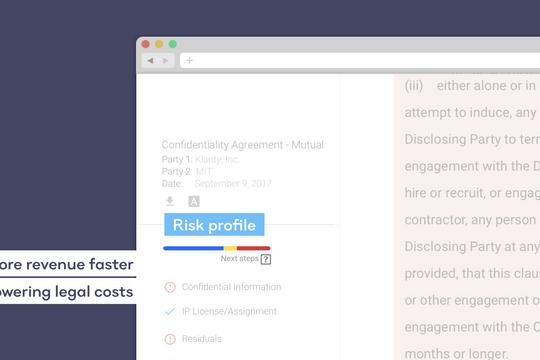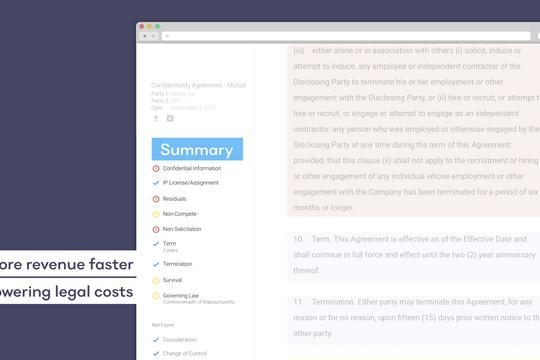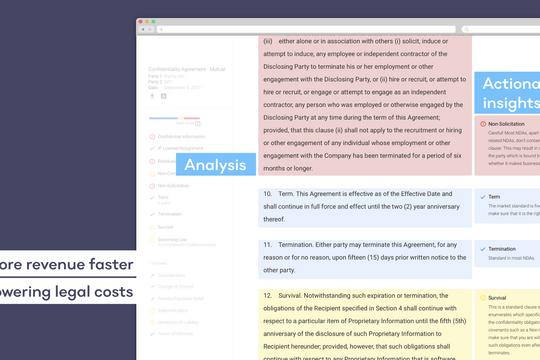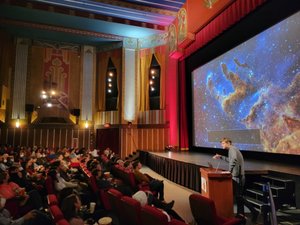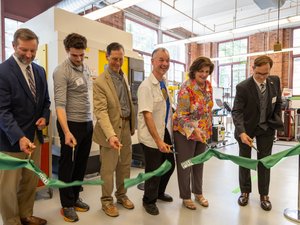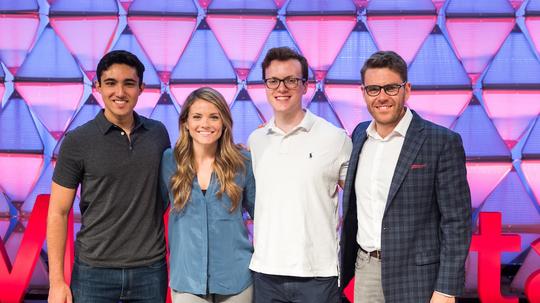
Full disclosure: I’m not writing this story by myself.
While I’m typing on the keyboard, Grammarly - a free extension for Chrome - works on background checking grammar, spellings and punctuation. Typos are underlined in red: for each mistake I make, “Did you mean” windows appear with a list of suggestions.
The Klarity software works similarly, with two major differences. First, its focus is not on the grammar of the English language, but on the legal jargon that populates sales contracts. Second, it’s not available for free - the startup that’s developing it just went through the “delta v” program at The Martin Trust Center for MIT Entrepreneurship and is planning to sell its cloud-based software to enterprise software companies first.
“We think that by removing the need to do this mundane, repetitive work, we will free up [lawyers'] time to do more impactful work.”
The goal of the program, which is powered by artificial intelligence, is not taking the place of legal professionals, but speeding up the contract review process, which lawyers and salespeople tend to consider a tedious, time-consuming task.
“We think that by removing the need to do this mundane, repetitive work, we will free up [lawyers'] time to do more impactful work,” Andrew Antos, co-founder of Klarity and Harvard Law graduate, said in an interview.
To finalize a deal, both parts need to carefully review the documents to check that every legal detail is in place. Imagine people stuck at their desks, with a pile of papers next to them. “By applying our software, they’re able to do that within twenty seconds, instead of two days,” Antos said.
When salespeople receive the contracts, all they have to do is upload the files on Klarity and run the software. Following a comparison with the company’s policy, Klarity reaches the conclusion whether salespeople can go ahead and sign, or not. If not, the software provides suggested corrections - like Grammarly would do with grammar mistakes.
Developed by Logan Ford and Nischal Nadhamuni, two computer science seniors at MIT, the Klarity software works in three different steps. Check out the following gallery to learn more:
Gallery
Currently, Klarity works for non-disclosure agreements (NDAs) and it’s testing internally for two other types of contracts: “beta” or “pilot” agreements and master service agreements. Signing the three types of contracts is the three-step process to conclude a deal in enterprise software sales, Antos explained.
Pricing is based on “modules,” according to Antos, and each module covers one type of agreement. For example, the NDA module costs between $100 and $300 a month, depending on the size of the company.
Antos said they’ve raised over $50,000 in various grants and programs from MIT and they’re hoping to close their pre-seed round - $250,000 on a convertible note - by the end of October.
After polishing out the product and gaining more customers among enterprise software companies, Antos said they want to start scaling by going into other industry verticals. The first on the list is media and entertainment because people in this industry sign a massive amount of contracts spread across very few contract types.
